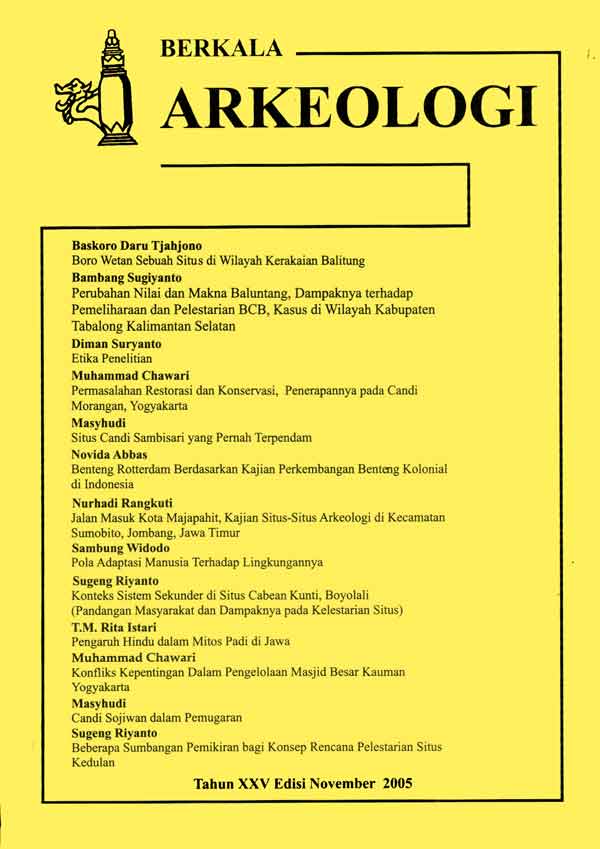ETIKA PENELITIAN
Main Article Content
Abstract
Science requires discipline and this in turn is governed by ethics. Scientific ethics is needed in the three aspects of scientific science, namely teaching, research, and the application of science. Research ethics must have started to be considered since the research was prepared and only ended after the results of the research were published. This description will briefly discuss research ethics at each stage of the research.
Article Details

This work is licensed under a Creative Commons Attribution-NonCommercial-ShareAlike 4.0 International License.
References
Anonim, Surat Edaran bersama Kepala Badan Administrasi Kepegawaian Negara dengan Ketua Lembaga Ilmu Pengetahuan Indonesia, Nomor 021/ SE/ 1983; Nomor 75/ Kepi JIO/ 1983, tanggal 29 Januari 1983
Anonim. Keputusan Ketua Lembaga Ilmu Pengetahuan Indonesia Nomor: 1660/ DI 1999, tentang Organisasi dan Tata Kerja Panitia Penilai Jabadan Peneliti dan Nomor: 1661/D/1999 tentang Pedoman Penilaian Karya Ilmiah Jabatan Peneliti, Lembaga Ilmu Pengetauan Indonesia,, Jakarta 1 September 1999
Anonim. Kreteria Penetapan Angka Kredit Bagi Usulan Tenaga Peneliti, Departemen Pendidikan dan Kebudayaan, Badan Penelitian dan Pengembangan Pendidikan dan Kebudayaan, Jakarta, 1997
De Bakey, Lois 1976. The Scientific Journal. C.V. Mosby Company. St.Louis Edsall, John T.1981.Two aspecs of scientific responsibility. Science 212 (4490): 11-4
Ferryanto, S.G. 1997 Dasar-dasar Penulisan : Teknik Laporan dan Makalah Sains dan Rekayasa, Grasendo. PT Gramedia Widiasarana Indonesia, Jakarta.
Guttentag, Otto E. 1968 Ethical problems in human experimentation, dalam FullerTorrey (ed) Ethical Issues in experimentation, pp 195- 226 Little, Brown and Company, Boston.
Hulse, Frederick S. 1969. Scientific Ethics and Physical Anthropology Am. J. Phys. Anthrop. 31 (2): 245-8
Price, Don K. 1979. The Ethical Principles of Scientific Institutions. Dalam Torgny Segerstedt Ethic for Science Policy. Pp 91-103

